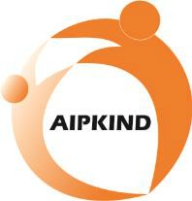The Level of Knowledge, Attitudes, Behaviour of Women in Reproductive Age (WRA) with Online Class BSE
Abstract
Breast cancer is the second leading cause of malignancy among women in Indonesia. Breast Self-Examination (BSE) is one way of early detection to determine the presence of a mass in the breast. But in reality, the awareness to do BSE is still lacking among women. This study aims to determine changes in the level of knowledge, attitudes, and behavior of women of childbearing age (WUS) after attending BSE online classes. This study uses a one-group pretest-posttest. The population in this study were women of childbearing age who came to the integrated service post. Subjects were selected using a purposive sampling technique according to the inclusion criteria of as many as 25 respondents. Based on the results of the research conducted, there are differences in scores before and after the online class on BSE. Before counseling the average score was 53.8 after counseling the average score was 63. The results of the bivariate analysis the average behavioral pretest score was 2.76 while the post-test average was 5.64 with a p-value of 0.01 <0.005 so it was concluded that there was a significant difference in the average pretest and post-test behavior scores. The average pretest knowledge score is 17.48 while the post-test average score is 22.96 with a p-value of 0.01 <0.005 there is a significant difference in the pretest and post-test knowledge scores. The pretest attitude score was 53.8 while the post-test score was 63 with a p-vale value of 0.01 <0.005, indicating that there was a significant difference between the pretest and post-test attitude scores. This shows that online classes have a positive influence on WRA's behavior to do BSE. As a comparison tool for the world of science in enriching information about BSE behavior, it is necessary to conduct research using other methods that further explore the activity of respondents, for example through video media.
Keywords
Full Text:
PDFReferences
K. RI, Bulan Peduli Kanker Payudara. Jakarta, 2016.
A. C. S. (ACS)., “No Title,” Breast Cancer Facts & Figures 2017-2018, 2017. https://www.cancer.org/.
Kemenkes, “No Title,” Bulan Peduli Kanker Payudara, no. Kanker Payudara, 2016.
American Cancer Society, “Breast Cancer Fact & Figure,” Amerika, 2017. [Online]. Available: https://www.cancer.org/.
A. Rahmatari, “Anggapan Kesehatan Yang Dirasakan Wanita Usia Subur Dalam Memeriksakan Payudara Sejak Dini,” J. Berk. Epidemologi, vol. 2, no. 2, pp. 309–320, 2014.
Z. Arifin, “Kriteria instrumen dalam suatu penelitian,” J. Theorems (the Orig. Res. Math., vol. 2, no. 1, pp. 28–36, 2017.
Sunaryo, Psikologi untuk Keperawatan. Jakarta: EGC, 2014.
F. Oktaviana, M. N., & Nuzula, “Perbedaan Pengetahuan dan Praktik antara Pre Post Pendidikan Kesehatan dengan Metode Demonstrasi tentang Keterampilan Melakukan Pemeriksaan Payudara Sendiri (Sadari) pada Mahasiswi Baru Akademi Kesehatan Rustida Krikilan Banyuwangi,” J. Ilm. Kesehat. Rustida, vol. 7, no. 2, pp. 99–106, 2020.
Azwar, Sikap Manusia : Teori dan Pengukurannya. Yogyakarta: Liberty, 2012.
A. Na’mah, L. U., Zakiyyah, N., Khasanah, E. W., Hermawan, H., & Setiawan, “Peningkatan Pengetahuan melalui Sosialisasi Kesehatan Reproduksi Remaja tentang Kenakalan Remaja (Narkoba danHIV/AIDS).,” in Proceeding of The URECOL, 2019, pp. 263–266.
S. M. Septiani S, “Faktor-Faktor yang Berhubungan dengan Perilaku Pemeriksaan Payudara Sendiri (Sadari) pada Siswa SMAN 62 Jakarta 2012,” J. Ilm. Kesehat., vol. 5, no. 1, pp. 31–35, 2013.
S. Notoatmodjo, Promosi kesehatan & ilmu perilaku. 2007.
L. E. Baswedan RH, “Hubungan Tingkat Pengetahuan tentang Pemeriksaan Payudara Sendiri (Sadari) dengan Perilaku Sadari pada Mahasiswi Non Kesehatan di Universitas Muhammadiyah Yogyakarta,” Biomedika, vol. 6, no. 1, pp. 1–6, 2014.
A. Irna Setyowati, Noor Alis Setiyadi, “Risiko Terjadinya Kanker Payudara Ditinjau Dari Pengetahuan, Sikap dan Perilaku Pencegahan,” 2014.
Narsih U et al, “Pendidikan dan Pelatihan tentang SADARI bagi Remaja Putri,” J. Parad., vol. 1, no. 1, pp. 53–57, 2017.
D. D. dan E. N. Putri IM, “Hubungan Self Efficacy dengan Perilaku Periksa Payudara Sendiri (SADARI) pada Wanita di Kecamatan Tegalrejo Kota Yogyakarta,” UNISA Yogyakarta, 2017.
dkk Novasari DH, “Hubungan Pengetahuan, Sikap dan Paparan Media Informasi dengan Praktik Pemeriksaan Payudara Sendiri (Sadari) pada Santriwati Pondok Pesantren Al Ishlah Tembalang Semarang Tahun 2016,” J. Kesehat. Masy., vol. 4, no. 4, pp. 186–194, 2016.
R. Andraini, “Perbedaan Peningkatan Pengetahuan, Sikap dan Perilaku Ibu tentang Deteksi Dini Kanker Payudara dengan ‘Sadari’ melalui Metode Cara Belajar Aktif (CBA), Modul dan Leaflet di Kelurahan Batu Ampar,” J. Kesehat. Masy., 2017.
D. Kusuma, P. D., & Susilawati, “). Persepsi Mahasiswa Program Studi Ilmu Keperawatan Universitas Diponegoro Angkatan 2006 Jalur Reguler Yang Berisiko Terkena Kanker Payudara Terhadap Perilaku ‘Sadari,’” J. Keperawatan Matern., vol. 1, no. 2, 2013.
A. Olfah, Y, Mendri, N.K & Badi’ah, Kanker Payudara dan SADARI. Yogyakarta: Nuha Medika, 2013.
W. D. Marzella Milla, Ari Damayanti Wahyuningrum, “Hubungan Motivasi Wanita Usia SUbur Terhadap Upaya Preventif Deteksi Dini Kanker Payudara Dengan SADARI Pada Mahasiswa Keperawatan,” J. Kesehat. dan Sains, vol. 4, no. 2, pp. 1–9, doi: https://doi.org/10.51487/jks.v4i2.78.
DOI: https://doi.org/10.31983/jkb.v12i2.6906
Article Metrics
Refbacks
- There are currently no refbacks.
Abstracted/Indexed by:
Jurnal Kebidanan by http://ejournal.poltekkes-smg.ac.id/ojs/index.php/jurkeb is licensed under a Creative Commons Attribution-ShareAlike 4.0 International License.
View My Stats aw
.png)
.png)




.png)





